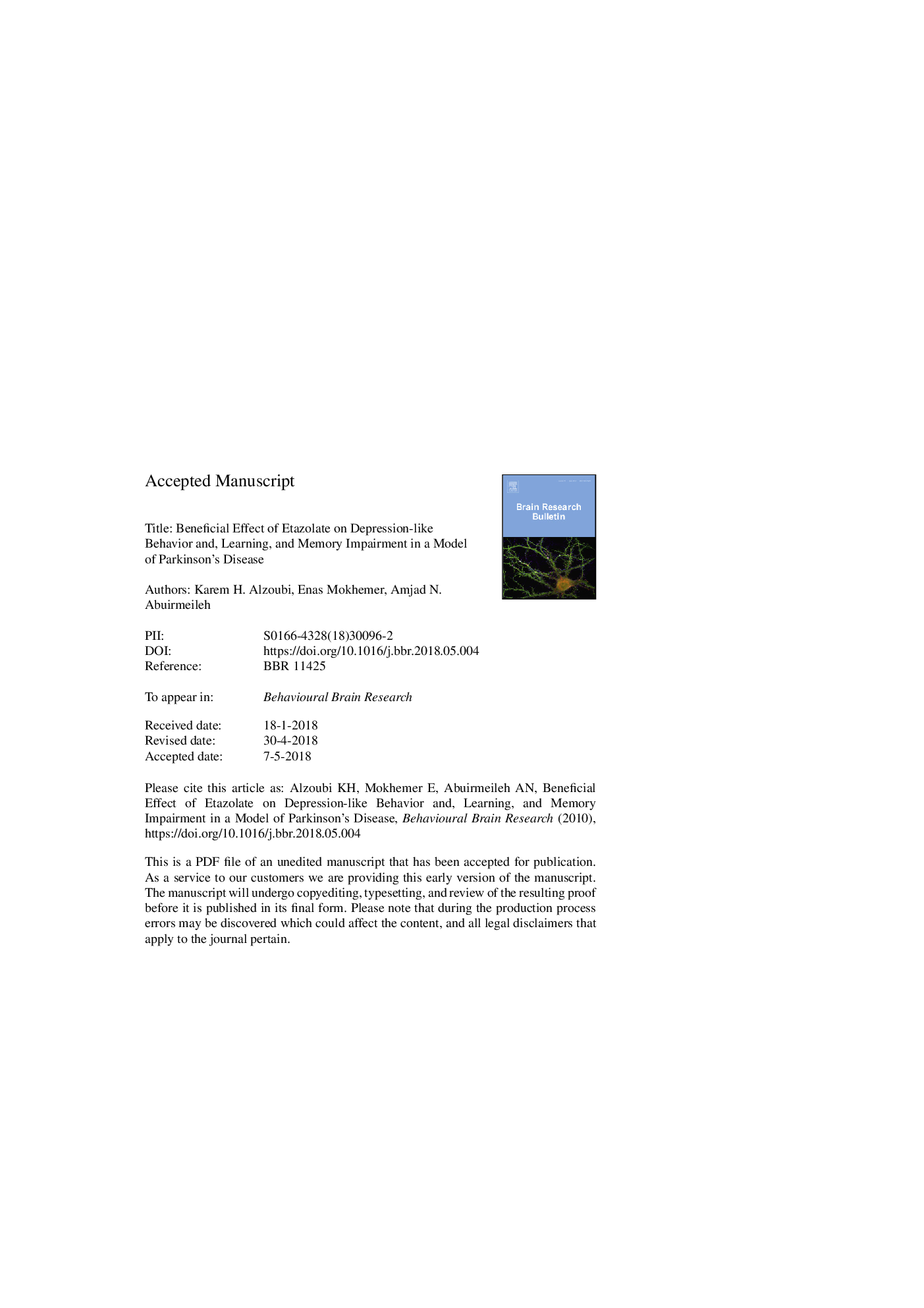| Article ID | Journal | Published Year | Pages | File Type |
|---|---|---|---|---|
| 8837701 | Behavioural Brain Research | 2018 | 27 Pages |
Abstract
The aim of this study was to evaluate etazolate against depression-like behavior and, learning and memory impairment induced by 6- hydroxydopamine (6-OHDA) rat model of Parkinson's disease (PD). This aim was achieved through comparing 6-OHDA lesioned rats in the presence and absence of etazolate. The 6-OHDA was used to induce lesion as a model of PD. Etazolate was administered at a dose of 1â¯mg/kg/day for 14 days, starting 7 days after lesion induction. Apomorphine-induced rotation test was used to evaluate 6-OHDA-induced motor deficits, tail suspension test was used to assess depression-like symptoms, and the radial arms water maze (RAWM) was used to evaluate special learning and memory functions. Antioxidant biomarkers and BDNF protein levels were assessed in the hippocampus. Results revealed that etazolate administration significantly improved 6-OHDA-induced PD related symptoms including motor deficits, depression-like behavior and impairment of both short- and long- term memory. Moreover, etazolate significantly prevented 6-OHDA-induced reduction in oxidative stress biomarkers (GSH/GSSG ratio, GPx) and BDNF levels. In conclusion, motor dysfunction, depressive- like behavior, and learning and memory deficits in the 6-OHDA rat model of PD can be significantly prevented by etazolate. This prevention could be attributed to etazolate's ability to prevent reduction in antioxidative stress biomarkers and BDNF levels.
Related Topics
Life Sciences
Neuroscience
Behavioral Neuroscience
Authors
Karem H. Alzoubi, Enas Mokhemer, Amjad N. Abuirmeileh,
